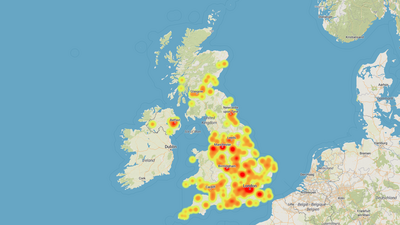|
COVID-19 scams
COVID-19 scams are scams whose cover story primarily relies on the existence of the COVID-19 pandemic. They have been reported in multiple countries, primarily the United States, Canada and the United Kingdom. Within the United Kingdom there were many instances of companies contracted to provide COVID-19 testing kits and personal protective equipment (PPE), when the companies had direct ties to those in the UK parliament.  InitiationCOVID-19 scams are initiated in a variety of ways, such as by robocalls, emails, fake blog and social media posts[2] and text messaging.[3] Researchers found that fear of COVID-19 and anxiety increased the success of phishing scams.[4] Types of scamsBenefit/grant scamsIn this variation of COVID-19 scams, the fraudster claims that the victim is eligible for a COVID-19 benefit payment. This scam is a derivative of the advance-fee scam, where the scammer will ask the victim for a small payment in return for the 'benefit'. The scammer will then ask for further payments under the guise of problems, until the victim refuses to pay any further.[5][6][7][8][9] Authority impersonation scamsThe United Nations WHO has issued a warning that fraudsters posing as employees of the WHO were attempting to gain personal information through phishing emails and fake help lines.[10] COVID-19 vaccination scamsIn this variation, the fraudster will offer to sell the victim a 'COVID-19 vaccine' or treatment. Victims who fall for this scam reveal their personal information and payment information to the scammer. In one reported incident, victims in the UK were sent a text message purporting to be from the National Health Service which claimed that they were now eligible to receive a COVID-19 vaccine, but needed to fill their personal details into an online phishing form to book a place on the program. Information lost by the victims included their debit card information, which was then used to withdraw funds from the victim's bank account. COVID-19 vaccination scams have been reported in various countries including the United Kingdom,[11] United States[12] and Singapore.[13][14][15][16][17][18] COVID-19 testing scamsIn this variation of COVID-19 scams, the fraudster claims they are authorized testing site that could offer COVID-19 test. But it require people to offer their health-related information. US department of Health and Human Services sent fraud alert to the public about fraud schemes.[19] COVID-19 related stock scamsIn the United States, victims were persuaded to buy stocks in companies which were claimed to be about to release a 'miracle cure' for COVID-19 through posts in Facebook.[20] The Independent reported that online adverts claimed to sell "vaccine bonds" purportedly linked to the US drug company and COVID-19 vaccine manufacturer Pfizer, which were sold with a minimum of US$10,000 investment. Pfizer confirmed it had no links to these bonds. [21] As of mid-December 2020, the U.S. Securities and Exchange Commission has suspended trading in 36 companies which claimed to have access to COVID-19 related materials such as testing kits and treatments.[20] United Kingdom FraudThe first published incident was in May 2020, where a healthcare firm was contracted to produce COVID-19 testing kits, however there was no competitive process to the contract and the healthcare firm hired a Conservative MP Owen Paterson as a consultant.[22] Subsequent contracts worth £1.7 billion to have been handed out without due process, prioritising those with connections within the government.[23] Further issues appeared as there were issues with some of the masks purchased, leading to the removal of fifty million masks, a £252 million contract, as they did not meet the health standards provided by the NHS. In December 2020, a company was found to have provided £122 million worth of gowns that weren't used due to the slow approval process, which was hampered due to investigations into the companies origins, as it had been formed 6 weeks prior to the contract. LossesAccording to the Federal Trade Commission, from the start of the COVID-19 pandemic to April 30, 2020, US$13.44M was lost in total due to coronavirus fraud.[24] See alsoReferences
|